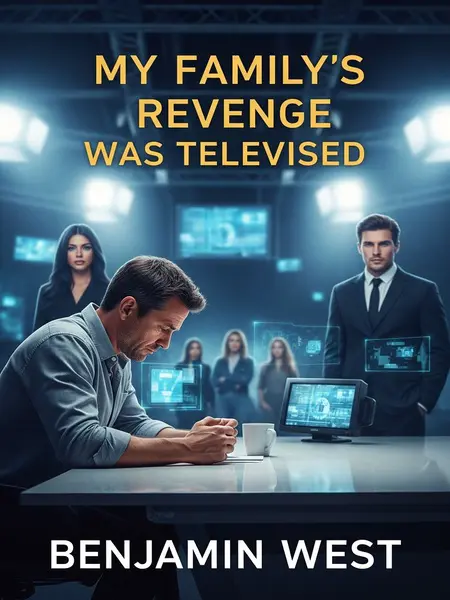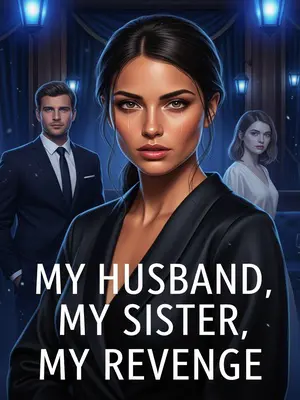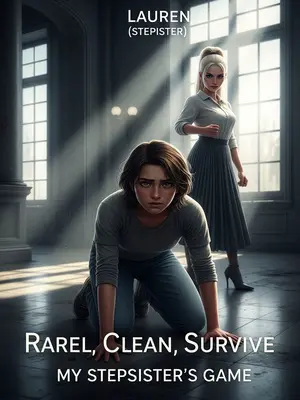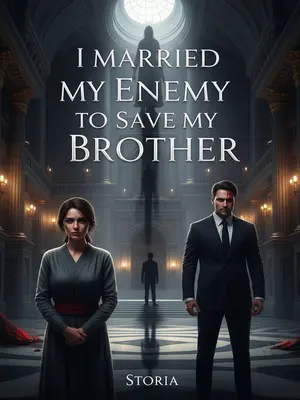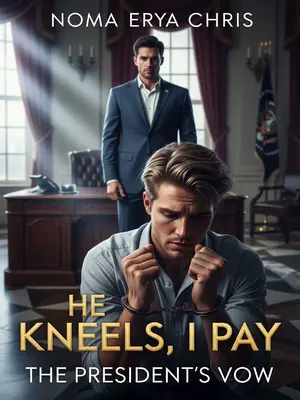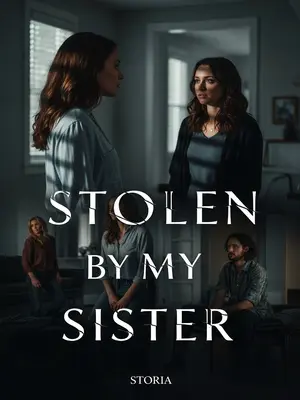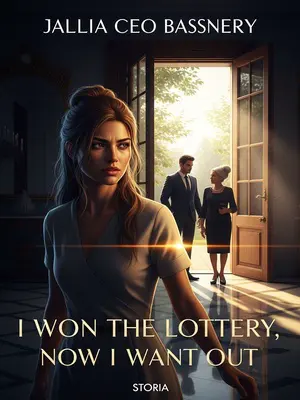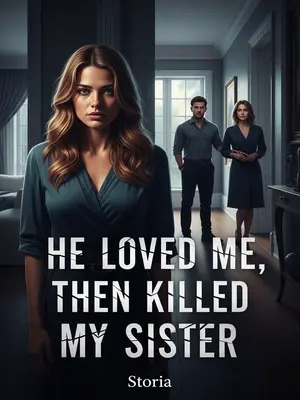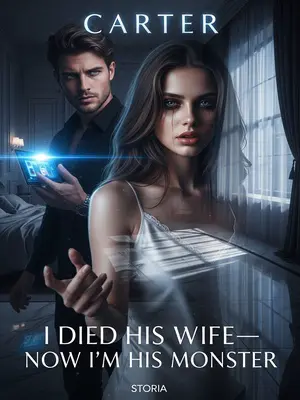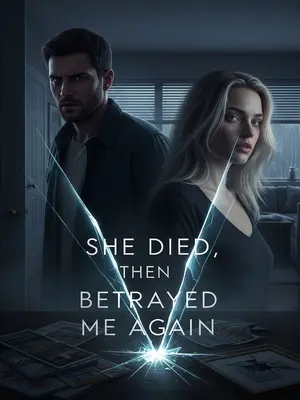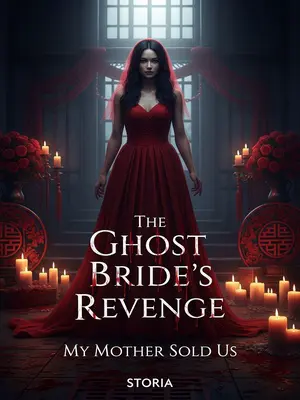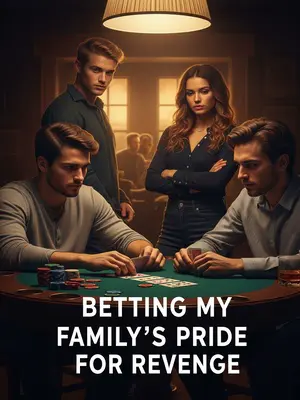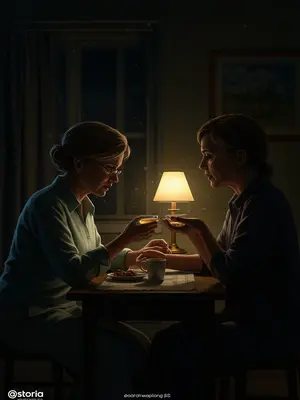Chapter 2: Memories on Trial, America Decides
Soon enough, the techs strapped the neural headsets onto us.
The techs moved with clinical efficiency, strapping the headsets in place, checking vitals, running last-minute diagnostics. The air buzzed with anticipation, the hum of electronics mixing with the low murmur of the crew. Savannah and Calvin sat nearby, faces set, waiting for the fireworks.
Calvin said, “Cue up the memory where he abused my mom. Let the whole country witness his ugly crimes!”
He didn’t flinch, didn’t hesitate. Calvin wanted blood, and he wanted it live. My heart pounded in my chest. The researchers exchanged nervous glances but followed his orders. In the control booth, the producer counted down. The whole nation held its breath.
A few taps later, the screen lit up.
A hush fell over the room as the first images flickered into view. The past was no longer just a story—it was right there, vivid and undeniable. Every detail, every sound, every tear was broadcast in high definition.
I stood beside Calvin, and when I saw that familiar scene, I froze, tears streaming down my face. My throat closed up. I wanted to scream, to look away, but I couldn’t.
It was like being punched in the gut.
Pain, guilt, regret—a storm of emotions stabbed into my heart like knives. My hands trembled. I clenched my fists, desperate to hold myself together.
Inside a run-down house, a scruffy man in his thirties dragged a frail woman out of a room.
The house was barely holding together—peeling wallpaper, sagging floorboards, the smell of mildew clinging to the air. The man’s clothes were threadbare, his face hollow with exhaustion and something darker. The woman—Lillian—looked like she hadn’t eaten in days, her eyes sunken, skin ghost-pale.
He grabbed a thick rope, tied her to a support beam—rough, desperate.
The sound of the rope scraping against wood was jarring, raw. The man’s hands shook as he worked, but his grip never loosened. Every movement was desperate, almost frantic. In the background, the TV played static, filling the silence with white noise.
That man was Benjamin West—my younger self. The woman was Lillian Carter, my wife, the person I owed the most in my life.
Seeing myself like that—angry, desperate, haunted—was almost too much to bear. Lillian had once been the light of my life, the one person who believed in me when no one else would. Now, all I could see was the pain I’d caused her.
Lillian was gaunt and covered in bruises. She struggled desperately, her eyes fixed on me in agony, her screams tearing through the room.
Her voice was raw, almost animal. She clawed at the rope, tears streaking her cheeks. The neighbors must have heard, but nobody came. That was the kind of place we lived in—everyone had their own secrets, their own pain.
“Ben! Let me go! Let me go! Or I’ll never forgive you!”
Her words echoed in the tiny house, bouncing off the walls. There was a kind of finality to her threat—a line drawn in the sand. Even now, decades later, I could still hear the heartbreak in her voice.
I ignored her, tying the rope tight. “You’re not going anywhere! Today, you’re staying home, no matter what!”
My voice was harsh, desperate, like I was trying to convince myself as much as her. There was fear behind the anger—fear of losing her, fear of everything falling apart. But all she saw was control, and maybe that’s all there was in that moment.
Lillian went wild, screaming and thrashing. “Ben West! Who gave you the right to lock me up? Who?! This is my business, not yours!”
She kicked and screamed, but I didn’t let go. The anger in her eyes was like fire, burning away any trace of the woman I’d married. I could feel the judgment of the viewers, even through the screen.
I glared at her. “I’m your husband. That means I’m responsible for you.”
The words sounded hollow, even to me. Responsibility—what a joke. I’d failed her in every way that mattered. But in that moment, I clung to the only authority I had left.
My words hung in the air. I reached into her pocket and pulled out a wad of crumpled bills.
The money was damp with sweat, barely enough for groceries. I hated myself for taking it, but I told myself it was for the family. That was the lie I told to sleep at night.
As I took the money, Lillian’s face twisted with panic. She tried to stop me, her eyes bloodshot. “No! Give it back! That’s my money! Mine!”
Her hands clawed at mine, nails digging into my skin. She was desperate, terrified. I could see the betrayal in her eyes, and it broke something inside me. But I couldn’t stop.
I didn’t answer. I went to the kitchen. Filled a bowl with cold water. Dumped it over her. “Calm down.”
The water splashed everywhere, soaking her hair and the thin rug beneath her feet. She gasped, shivering violently. I thought I was helping, but all I did was make things worse.
The icy water made her shiver uncontrollably.
She looked up at me, lips blue, teeth chattering. I’d never seen her so fragile, so defeated. It was a sight I’d never forget, no matter how hard I tried.
The camera found two kids—six years old, hiding by the door, secretly watching, their faces streaked with tears, eyes full of fear and hatred for their father.
The kids—my kids—were shadows in the doorway. Savannah clutched her brother’s hand, both of them trembling. Their eyes were wide, unblinking, as if they were trying to memorize every detail so they’d never let it happen to them. I wanted to reach out, to tell them I was sorry, but it was too late.
The chat blew up. People were furious, flooding the feed with condemnation.
The chat box exploded—lines of outrage, disgust, threats. People called for justice, for punishment. Some wept for Savannah and Calvin, others demanded my head. The nation had chosen its villain, and it was me.
“How could anyone treat his wife like that? People like him should rot in hell!”
The comments scrolled by so fast, I could barely keep up. Strangers across the country had seen a few minutes of my life and decided they knew everything. Maybe they were right.
“Savannah’s mom—she was beautiful, you can tell by her features. Now she looks like a ghost. This must be from years of abuse!”
The camera lingered on Lillian’s face, highlighting every bruise, every hollow cheek. The world saw her pain, and for the first time, I realized just how much she’d suffered.
“Those two kids, that’s Savannah and her brother, right? Having to go through that at such a young age, it’s heartbreaking.”
People posted childhood photos of Savannah and Calvin, comparing the bright smiles to the haunted looks on the screen. The contrast was brutal, unforgiving.
“Ben West ended up like this—he deserves it. If it were me, I’d have pulled the oxygen tube already.”
There was no mercy in the comments, no room for explanation. My fate was sealed in the court of public opinion.
My thoughts spun, lost in the noise. The world had made up its mind about me.
Savannah was watching the livestream, and when she saw her mother—gone for years—she broke down in tears. Seeing her mother tortured like that only deepened her hatred for me.
She tried to hold it together, but the sight of Lillian—her mother, her hero—reduced her to sobs. Her makeup ran in black streaks down her cheeks, but she didn’t care. The world could see her pain, and she wanted them to. She wanted them to hate me as much as she did.
“I’ll never forget this scene. Ben West tied my mom to a beam and abused her. The money in her pocket was all our family had left.”
Her voice trembled, but her words were steady. She told the story like she’d rehearsed it a thousand times, each retelling another wound that never quite healed.
“Mom hid it on her because she was afraid Ben would gamble it away. But he still took it by force!”
The chat filled with sympathy, people offering support, virtual hugs, and donations to domestic abuse charities. Savannah’s pain became a rallying cry.
“My brother and I could only hide behind the door, scared. After he left, we tried to untie Mom, but we were too little—the rope was too thick, we couldn’t cut it even with a knife.”
She described their tiny hands struggling with the knot, the hopelessness settling in as minutes ticked by. Some viewers typed their own stories of childhood fear, connecting with Savannah across the years and the screen.
"We could only watch Mom struggle and cry..."
The words hung in the air, heavy as stone. For a moment, even the trolls in the chat fell silent.
"Our family wasn’t always like this. It all went downhill when Ben got hooked on gambling. We ended up in a trailer park, sometimes even a grilled cheese was a luxury."
Savannah’s voice grew distant, as if she was remembering a world that barely existed anymore. She described the peeling linoleum, the leaky roof, the way hunger gnawed at their bellies every night. People in the chat shared their own stories of poverty, of scraping by on food stamps and school lunches.
“In the end, not only did he get Mom killed, he sold us to traffickers. If we hadn’t been taken in by good people, we’d probably have ended up like Mom.”
The chat exploded with outrage and disbelief. News anchors cut in with commentary, experts weighed in on cycles of abuse. My name became a hashtag for everything wrong with the world.
Hearing Savannah describe her tragic childhood, viewers poured out sympathy for her and pure hatred for me, cursing me in every way imaginable.
Some called for justice, others for vengeance. The story became a rallying point for reform, for change. But for me, it was just another reminder of everything I’d lost.
Calvin was seething as well. He made a decision on the spot, telling the researchers:
He stood, fists clenched, voice trembling with anger. “I can’t just watch this. I have to do something. Let me into that memory. I know I can’t change the past, but I have to fix this. I have to fix what happened to us.”
"I want to save Mom. I want everyone to see how I could have made her happy, how I would've held our family together! Scum like him doesn’t deserve to be called a father!"
The chat cheered him on, hearts and fire emojis flooding the screen. People believed in Calvin—believed he could rewrite the story, even if only in simulation.
Calvin’s followers rallied behind him, posting messages of encouragement, sharing stories of their own parents—good and bad. For a moment, hope flickered in the crowd.
